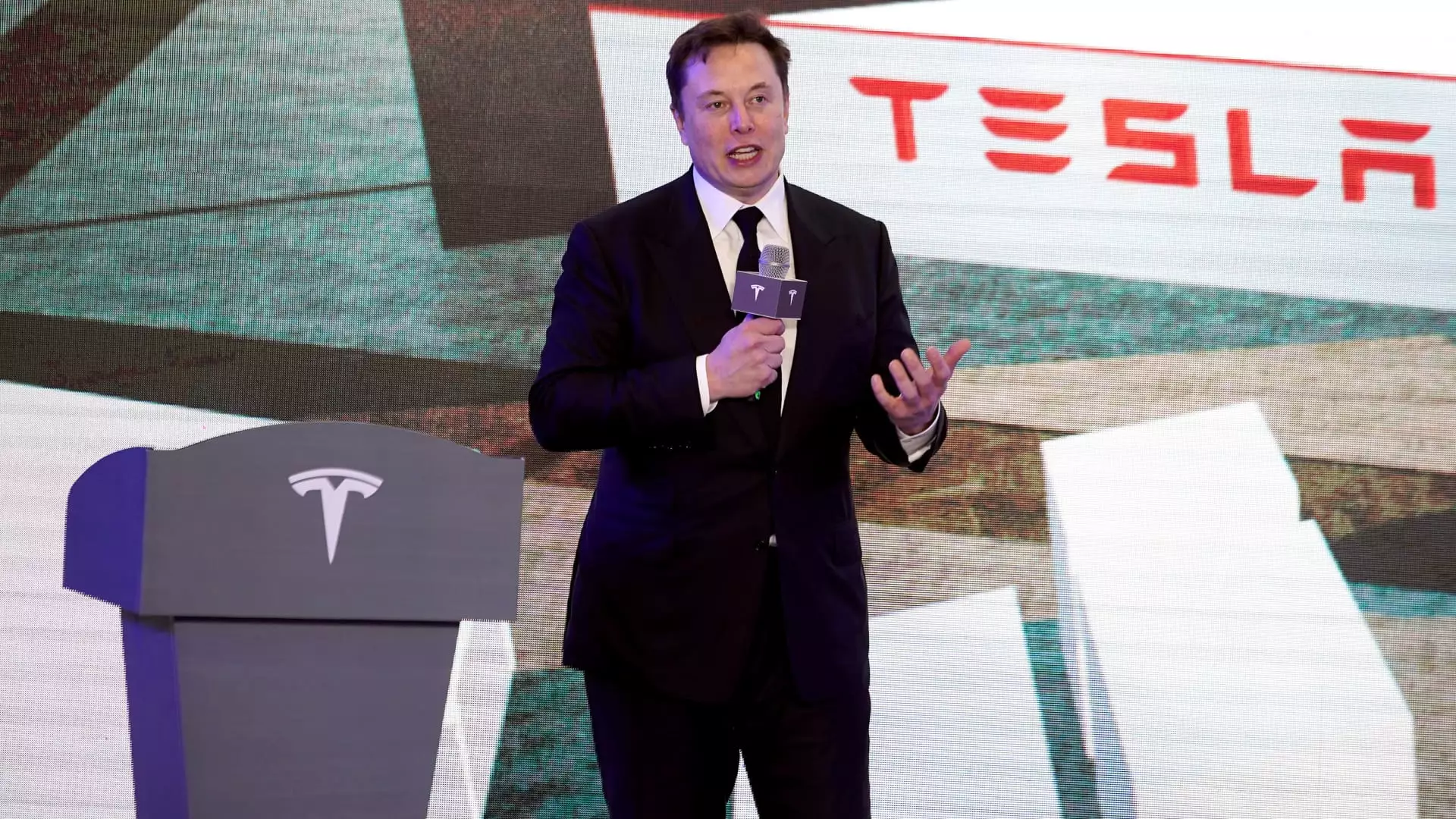Tesla, the innovative powerhouse led by Elon Musk, has made headlines once again, not for its cutting-edge technology or ambitious productions but for a significant alteration to its corporate bylaws. The company has opted for a strategic maneuver that effectively increases the barriers for shareholders intending to pursue lawsuits against the board of directors or executives for alleged breaches of fiduciary duty. This change raises important questions about corporate transparency, shareholder rights, and the potential consolidation of power within Tesla’s leadership.
As disclosed in a recent regulatory filing, the new bylaw stipulates that shareholders must hold at least a 3% stake in Tesla’s equity to initiate or maintain derivative proceedings. In a company that boasts a market capitalization exceeding $1 trillion, this threshold equates to more than $30 billion, effectively creating an inhospitable environment for smaller shareholders seeking recourse against the company. It is critical to examine the implications of such restrictions on the company’s governance and the protection of shareholder interests.
Legal Underpinnings and Corporate Strategy
The bylaw change is purportedly a reflection of Texas state law which permits corporations to implement provisions that limit shareholder lawsuits against company insiders. Tesla’s decision to incorporate in Texas, following previous legal challenges faced in Delaware, showcases a calculated attempt to shield its executive actions from legal scrutiny. Ann Lipton, an authority in corporate law, underscored this shift by articulating the formidable barrier it creates for potential litigants, enabling Tesla to sidestep accountability if an insider misconduct claim is filed.
Given Tesla’s remarkable growth trajectory, this legislative shield begs the question: is this a protective measure for legitimate corporate governance, or rather an overreach that erodes the checks and balances essential to corporate health? Unlike its time in Delaware—where a shareholder successfully challenged Musk’s hefty compensation package—this newfound legal landscape in Texas raises alarms regarding fairness and equity in corporate governance.
The Impact on Shareholder Rights
For ordinary investors, the ramifications of this bylaw change could be lasting and detrimental. By heightening the stakes required for holders of Tesla stock to engage in legal action, it effectively disenfranchises a significant portion of the investor base. A Huntington study found that shareholders typically express concerns about executive conduct when they feel empowered to act. Limiting their recourse diminishes their voice and influence within the company.
Although the intention behind these measures might be to stabilize the company’s leadership and minimize frivolous lawsuits, it could also inhibit genuine claims of corporate misconduct from gaining traction. Musks’ previous courtroom dilemmas reveal a history of challenges to leadership integrity, suggesting that Tesla’s status requires scrutiny rather than shielding from it. The recent bylaw changes might foster an environment where accountability is overshadowed, endangering shareholder interests and undermining public trust in the company.
Future Implications for Governance and Public Perception
The implications of this move extend beyond mere legal technicalities; they resonate deeply within the framework of corporate governance and investor relations. By imposing such stringent requirements on derivative actions, Tesla is signaling a transformation in how it wishes to engage with its shareholders moving forward. The optics of this decision may also shift public perception, painting Tesla as a company wary of scrutiny.
As the corporate landscape becomes increasingly complex and competitive, the ability to maintain transparency and open dialogue with stakeholders is integral to a company’s long-term success. Tesla’s latest bylaw adjustment potentially jeopardizes that relationship and could provoke broader unrest among an investor base that harnesses immense economic power yet has seen its voice diluted, far removed from the ideals of corporate democracy.
In navigating the delicate balance between safeguarding leadership and ensuring accountability, much remains to be seen regarding the practicality of these new bylaws. Tesla’s shareholders owe it to themselves to remain vigilant about corporate governance changes and advocate for the rights that are essential to maintaining the integrity of one of the most influential companies of our time.

